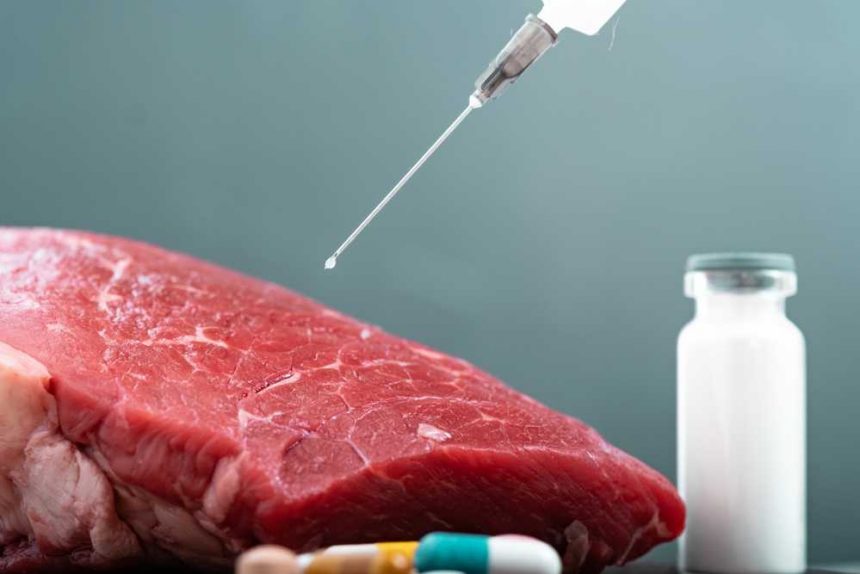“`html
The widespread availability of meat laden with antibiotics has raised significant concerns among health-conscious consumers. A recent survey conducted by the Natural Resources Defense Council (NRDC) shed light on the practices of major retailers, revealing alarming trends in the sale of antibiotic-treated meats. Retail giants including Walmart, Costco, Kroger, Publix, and Albertson’s/Safeway were among those flagged for selling meats loaded with antibiotics, prompting calls for increased transparency and consumer awareness.
The NRDC Survey: Evaluating Retailers’ Antibiotic Practices
In a concerted effort to assess the antibiotic practices of major retailers, the Natural Resources Defense Council (NRDC) conducted a comprehensive survey spanning various cities across the United States. The survey aimed to evaluate retailers based on their policies, consumer education initiatives, and sourcing practices concerning antibiotic use in meat products. Through this rigorous examination, the NRDC sought to shed light on the current state of antibiotic stewardship within the retail industry, identifying areas for improvement and highlighting best practices.
Retailers’ Policy Failures
The survey findings unveiled a concerning lack of commitment among major retailers to effectively address the issue of antibiotic use in meat production. While some progress has been made by leading chicken producers like Tyson and Perdue in reducing antibiotic use, retailers such as Walmart have lagged behind in implementing clear and transparent policies. Walmart, in particular, emerged as a major offender, failing to provide concrete commitments to phase out routine antibiotic use and neglecting to offer transparent timelines for such initiatives. This lack of clarity not only undermines efforts to promote antibiotic stewardship but also hinders consumers’ ability to make informed purchasing decisions.
Consumer Education Efforts
Despite a growing awareness of the risks associated with antibiotic-treated meats, retailers have fallen short of adequately informing consumers about their purchasing choices. While Publix was singled out for its efforts in providing signage across all stores to inform customers about producers with responsible antibiotic policies, these initiatives often overlooked producers in the process of transitioning away from antibiotic use. This highlights a critical gap in consumer education and underscores the need for more comprehensive educational campaigns to empower consumers to make informed choices about the meat products they purchase.
Sourcing Practices and Certification
While retailers have offered USDA-certified or Raised Without Antibiotics (RWA) chicken products, concerns persist regarding the credibility of these claims. The absence of third-party certification raises questions about the integrity of retailers’ sourcing practices and the reliability of their antibiotic-free claims. The NRDC’s findings suggest that retailers’ private-label chicken brands often source from producers with questionable antibiotic-free practices, casting doubt on the authenticity and reliability of the products offered to consumers. This underscores the need for robust certification standards and greater transparency in sourcing practices to ensure the integrity and trustworthiness of antibiotic-free claims within the retail industry.
Whole Foods: Leading the Way in Antibiotic-Free Practices
In contrast to the failing grades received by major retailers, Whole Foods emerged as a beacon of responsible sourcing and consumer education. The organic grocery chain was lauded by the NRDC for its comprehensive policy to sell antibiotic-free livestock products, extending beyond chicken to include beef, pork, and turkey. Whole Foods’ commitment to transparency and consumer engagement set a high standard for the industry, emphasizing the importance of ethical sourcing practices in promoting public health.
Addressing the Public Health Implications
The proliferation of antibiotic use in meat production poses significant risks to public health, contributing to the rise of antibiotic-resistant bacteria and threatening the effectiveness of vital medical treatments. Carmen Cordova, a staff scientist at the NRDC, emphasized the pivotal role of retailers in addressing this pressing issue. She urged supermarkets to prioritize public health by phasing out antibiotic-laden products and responding to consumer demand for safer, more sustainable options.
Advocating for Change
The NRDC’s survey serves as a call to action for both retailers and consumers to prioritize antibiotic-free practices in meat production. By advocating for transparent sourcing, clear labeling, and comprehensive consumer education, stakeholders can work together to create a healthier and more sustainable food system. As Cordova aptly stated, retailers have the power to be part of the solution to antibiotic resistance, but it requires a concerted effort to prioritize public health over profit.
“`






